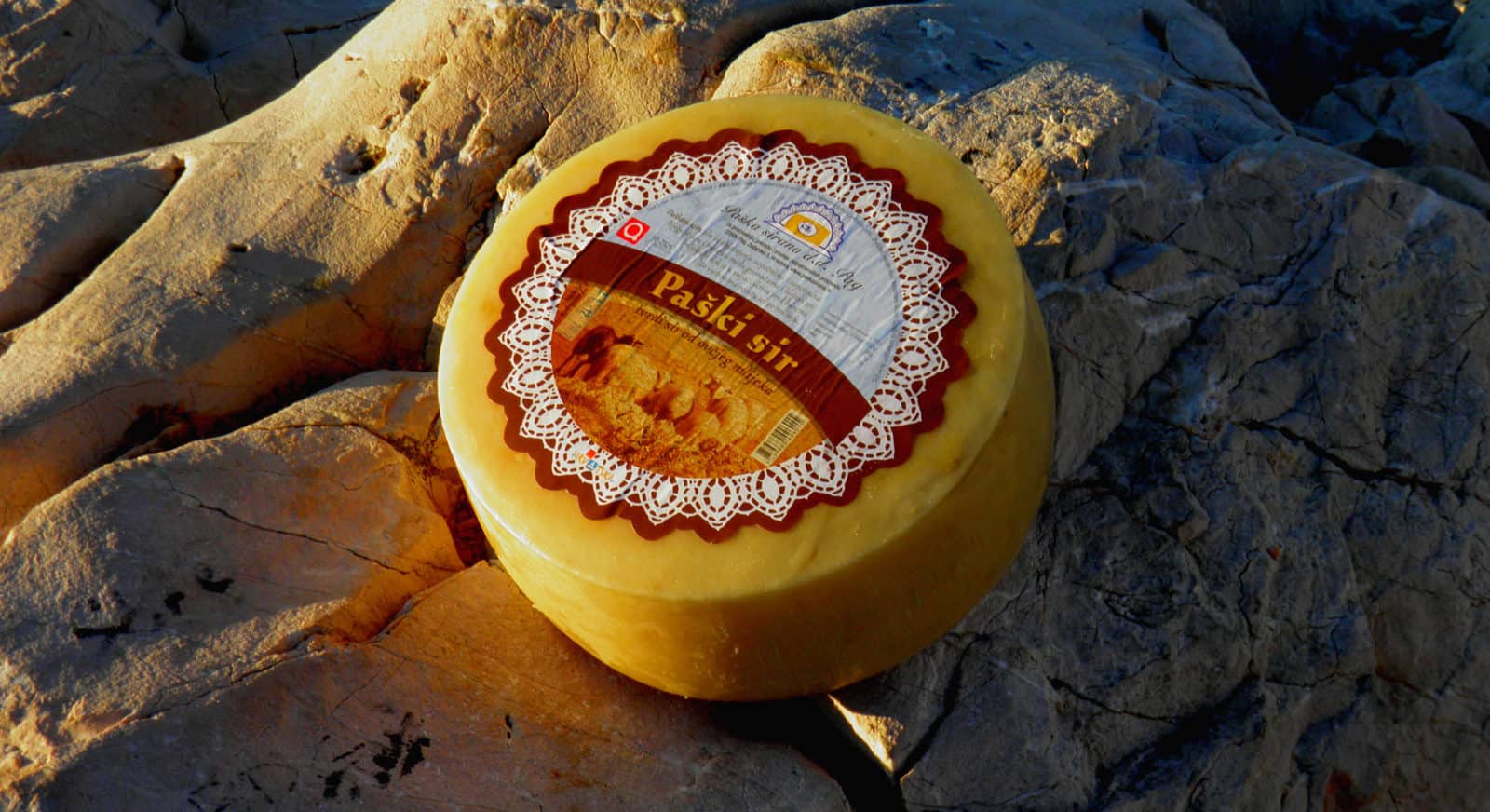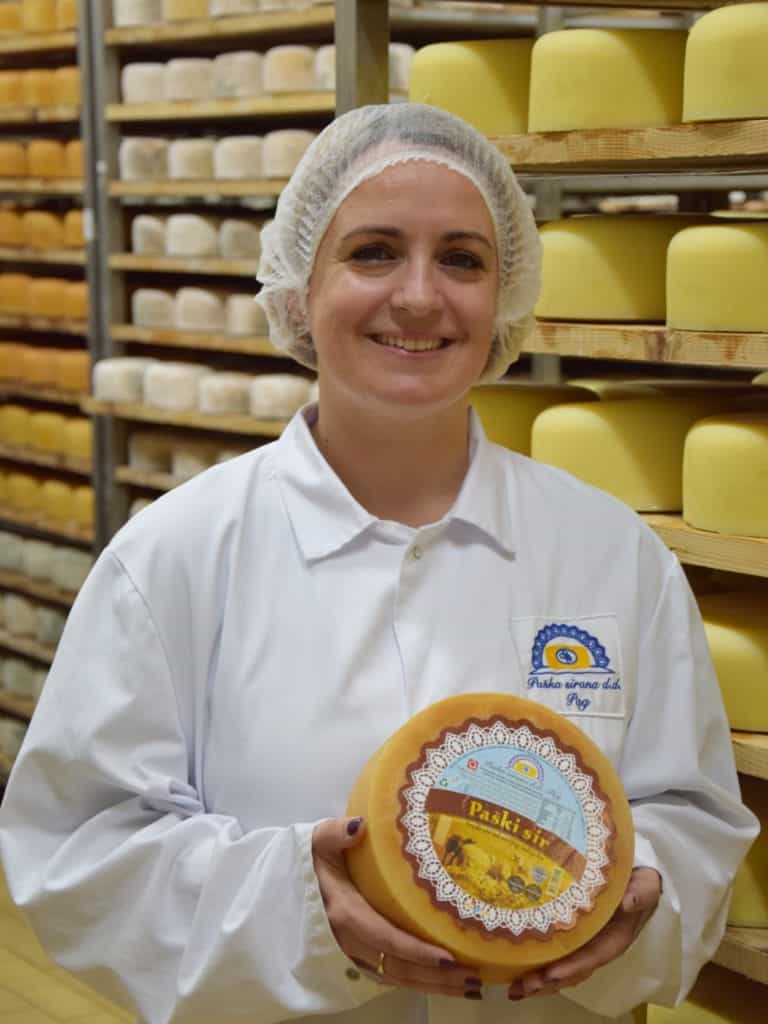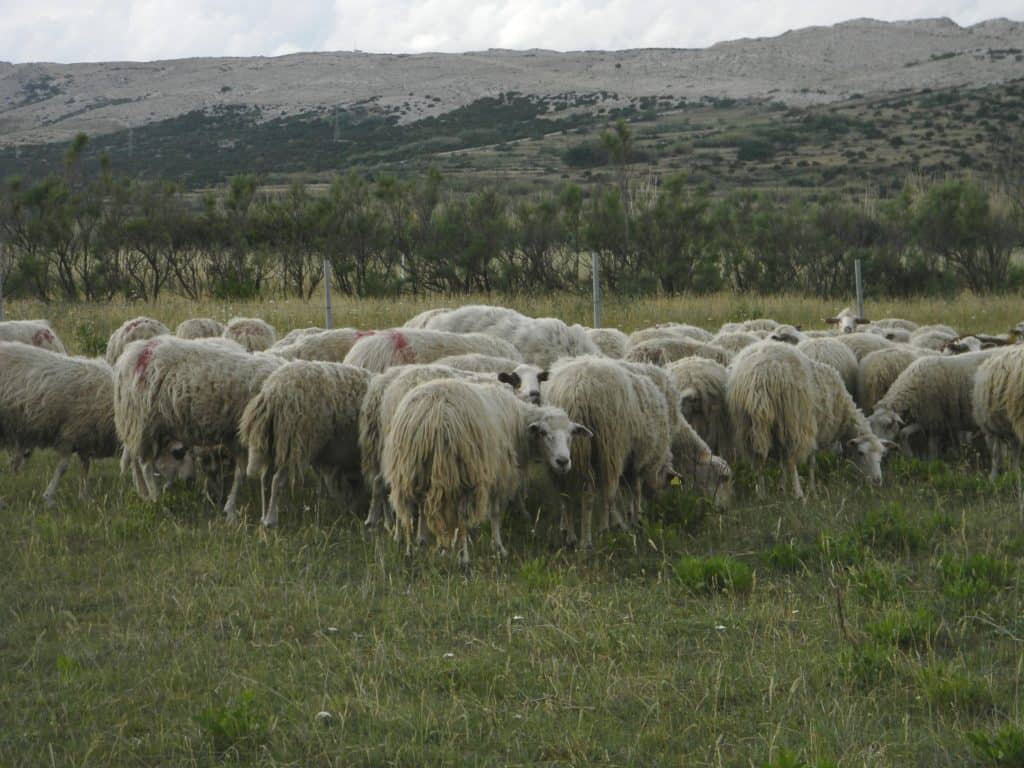
Big news for the cheese world: a new cheese has been granted Protected Denomination of Origin status, the first of its country no less. Paški Sir, a hard sheep’s milk cheese from the island of Pag in Croatia, has won PDO status after over a decade of campaigning by the family who makes it. And to make things even cooler, we at culture deemed Paški Sir one of our Best Cheeses of 2019 (we know, we’re psychic).
Paški Sir is not the first Croatian food product to gain PDO status, nor even the first to hail from the island of Pag—its predecessors include lamb meat from the very sheep who produce the milk for the cheese—but the fact that it is Croatia’s inaugural protected cheese is monumental. Chances are high you’ve heard of the European Union’s other PDO heavy hitters: Comté, Roquefort, and Parmigiano Reggiano are just three examples that can claim this distinction. Products like these often share their name with their place of origin, further highlighting the integral connection they have to their source.
France and Italy take the cake for number of cheeses with PDO status, not to mention wines, meats, breads, and other foodstuffs. PDO status ensures that taste of place remains front and center in any given product, the reason being that, if a foodstuff is produced, prepared, and processed within a determined geographical area, the result will be imbued with a unique flavor profile impossible to replicate anywhere else.
Think of PDO cheeses and their ilk like Madonna: there will never, can never be another celebrity, let alone pop singer, who can go by that name in the foreseeable future. To do so would undermine Madonna, her talent, her image, and the very gravitas her name inspires.
But back to Paški Sir. Croatian cheesemaker Ante Pernar began campaigning for PDO status for this special cheese 14 years ago, even founding a cheesemakers organization to protect it nationally and internationally. His daughter Martina, along with her cheesemaker brother Damir, brought the campaign to a successful conclusion in November of 2019, when the EU finally granted the cheese protection. “Paški Sir, for us, is more than food, more than cheese,” says Martina. “We feel it is a part of our tradition, part of our identity, something that we are very proud of.”
And it certainly deserves the geographical distinction: the 2,500 native Paška Ovca sheep who produce the milk spend their days grazing on the salt-encrusted herbs that grow along the craggy shores of their windswept island. Once they’ve had their fill of fennel, thyme, sage, or any of the 331 other plant species that grow on the island, each sheep will produce a mere half-litre of aromatic milk a day. Due to the decidedly low yield of these now-protected sheep, each five-pound wheel of Paški Sir requires the daily milk yield of up to 12 sheep. The conditions of the PDO dictate that each wheel of Paški Sir be aged for no less than 60 days, though it is possible to source wheels that are aged for longer, resulting in more intense flavors and a crunchier texture. The crystal-studded paste brings to mind an aged Gouda (another PDO cheese), and the flavors of butterscotch and dusky herbs transport the taster to a rustic farmhouse sheepfold.
New York-based Forever Cheese has been importing Paški Sir from its maker Paški Sirana since 2010, and was the first non-Croatian retailer to carry it. Co-owner Michele Buster, who first encountered the cheese in 2005, is especially thrilled. “It is such a special cheese and is more than worthy of such respect and reverence,” she says.
Congratulations to the cheesemakers of Paški Sirana, and here’s to more unique cheesy offerings from small countries in 2020!





